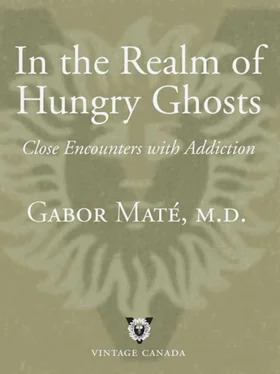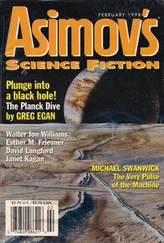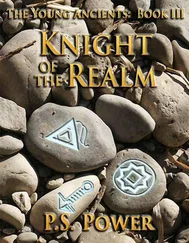Carol says she was able to experience herself in a completely new and positive way under the influence of crystal meth. “I felt like I was smarter, like a floodgate of information or whatever just opened in my head…It opened my creativity….” Asked if she has any regrets about her eight years of amphetamine addiction, she is quick to respond: “Not really, ’cause it helped bring me to who I am today.” That may sound bizarre, but Carol’s perspective is that drug use helped her escape an abusive family home, survive years of street living and connect her with a community of people with shared experiences. As many crystal meth users see it, this drug offers benefits to young street dwellers. Strange to say, it makes their lives more livable in the short term. It’s hard to get a good night’s sleep on the street: crystal meth keeps you awake and alert. No money for food? No need for hunger: crystal meth is an appetite suppressant. Tired, lacking energy? Crystal meth gives a user boundless energy.
Chris, a personable man with a mischievous sense of humour, whose well-muscled arms sport a kaleidoscope of tattoos, completed a year-long prison term a few months ago and is now back on the methadone program. In the Downtown Eastside he’s known by the strange sobriquet “Toecutter,” which he earned, legend has it, when he dropped a sharp, heavy industrial blade on someone’s foot. He continues to inject crystal meth with dogged determination. “Helps me concentrate,” he says. There’s no doubt he’s had Attention Deficit Disorder all his life and he accepts the diagnosis, but he declines treatment. “This smart doctor once told me I’m self-medicating,” he smirks, recalling a conversation we had years ago.
Chris recently came into the clinic with a fracture of his facial bones, sustained in a street brawl over a “paper” of heroin. Had the blow struck an inch higher, his left eye would have been destroyed. “I don’t want to give up being an addict,” he says when I ask him if it’s all worth it. “I know this sounds pretty fucked up, but I like who I am.”
“You’re sitting here with your face smashed in by a metal pipe, and you’re telling me you like who you are?”
“Yes, but I like who I am. I’m Toecutter, I’m an addict and I’m a nice guy.”

Jake, methadone-treated opiate addict and heavy cocaine user, is in his mid-thirties. With his wispy blond facial stubble and lively body movements and a black baseball cap pulled rakishly low over his eyes, he could pass for ten years younger. “You’ve been injecting a lot of cocaine recently,” I remark to him one day.
“It’s hard to get away from it,” he replies with his gap-toothed grin.
“You make coke sound like it’s some wild animal, stalking you. Yet you’re the one who’s chasing it. What does it do for you?”
“It cuts the edge off everyday life down here, of dealing with everything.”
“What is everything?”
“Responsibilities. I guess you could call it that—responsibilities. So long as I’m using, I don’t care about responsibilities…When I’m older, I’ll worry about pension plans and stuff like that. But right now, I don’t care about nothin’ except my old lady.”
“Your old lady…”
“Yeah, I look upon the coke as my old lady, my family. It’s my partner. I don’t see my own family for a year, and I don’t care, ’cause I’ve got my partner.”
“So the coke is your life.”
“Yeah, the coke’s my life…I care more about the dope than my loved ones or anything else. For the past fifteen years…it’s part of me now. It’s part of my every day…I don’t know how to be without it. I don’t know how to live everyday life without it. You take it away, I don’t know what I’m going to do…If you were to change me and put me in a regular-style life, I wouldn’t know how to retain it. I was there once in my life, but it feels like I don’t know how to go back. I don’t have the…It’s not the will I don’t have; I just don’t know how.”
“What about the desire? Do you even want that regular life?”
“No, not really,” Jake says quietly and sadly.
I don’t believe that’s true. I think deep in his heart there must live a desire for a life of wholeness and integrity that may be too painful to acknowledge—painful because, in his eyes, it’s unattainable. Jake is so identified with his addiction that he doesn’t dare imagine himself sober. “It feels like everyday life for me,” he says. “It doesn’t seem any different from anyone else’s life. It’s normal for me.”
That reminds me of the frog, I tell Jake. “They say that if you take a frog and drop him in hot water, he’ll jump out. But if you take the same frog, put him in water at room temperature and then slowly heat up the water, he’ll boil to death because gradually, degree by degree, he becomes used to it. He perceives it as normal.
“If you had a regular life and somebody said to you, ‘Hey, you could be in the Downtown Eastside hustling all day and blowing three or four hundred dollars a day on rock,’ you’d say, ‘What? Are you crazy? That’s not for me!’ But you’ve been doing it for so long, it’s become normal for you.”
Jake then shows me his hands and arms, covered with patches of silvery scales on a red, inflamed field of skin. On top of everything else, his psoriasis is acting up. “Do you think you could send me to a skin specialist?” he asks.
“I could,” I reply, “but the last time I did, you didn’t show for the appointment. If you miss this one, I won’t refer you again.”
“I’ll go, Doc. Don’t worry, I’ll go.”
I write out the prescriptions for methadone and for the dermatological creams Jake needs. We chat a little more, and then he leaves. He’s my last patient of the day.
A few minutes later, as I’m about to check my voicemail messages, there’s a knock. I pull the door ajar. It’s Jake, who made it to the front gate of the Portland but has returned to tell me something. “You were right, you know,” he says, grinning again.
“Right about what?”
“That frog you’re talking about. That’s me.”
CHAPTER 4

You Wouldn’t Believe My Life Story
Maté, you wouldn’t believe my life story. Everything I’m saying to you is true.”
“You think I wouldn’t believe it?”
Serena gives me a look that’s resigned and challenging at the same time. A tall Native woman with long, black hair, she has a perpetually world-weary expression on her thin face. Although she’s also capable of sudden mirth, even in laughter her eyes retain their sadness. Just over thirty years old, Serena has spent almost half her life here in the Downtown Eastside, wired on drugs.
What can you tell me, I think, that I haven’t heard down here before? Later, after I hear her out, I feel humbled.
Serena doesn’t readily share anything about her inner life. She comes for regular methadone appointments and every once in a while attempts to scam me for some other narcotic prescription, under the pretence of having a headache or back pain. When I refuse, she’s never argumentative. “Okay,” she says quietly, shrugging her shoulders. One day, two years ago, she appeared in my office, asking for methadone to “carry”—that is, rather than having to drink in front of the pharmacist every morning, she wanted several days’ doses in advance. “My grandmother died in Kelowna,” she told me in a flat monotone. “I have to go home for the burial.”
Читать дальше














